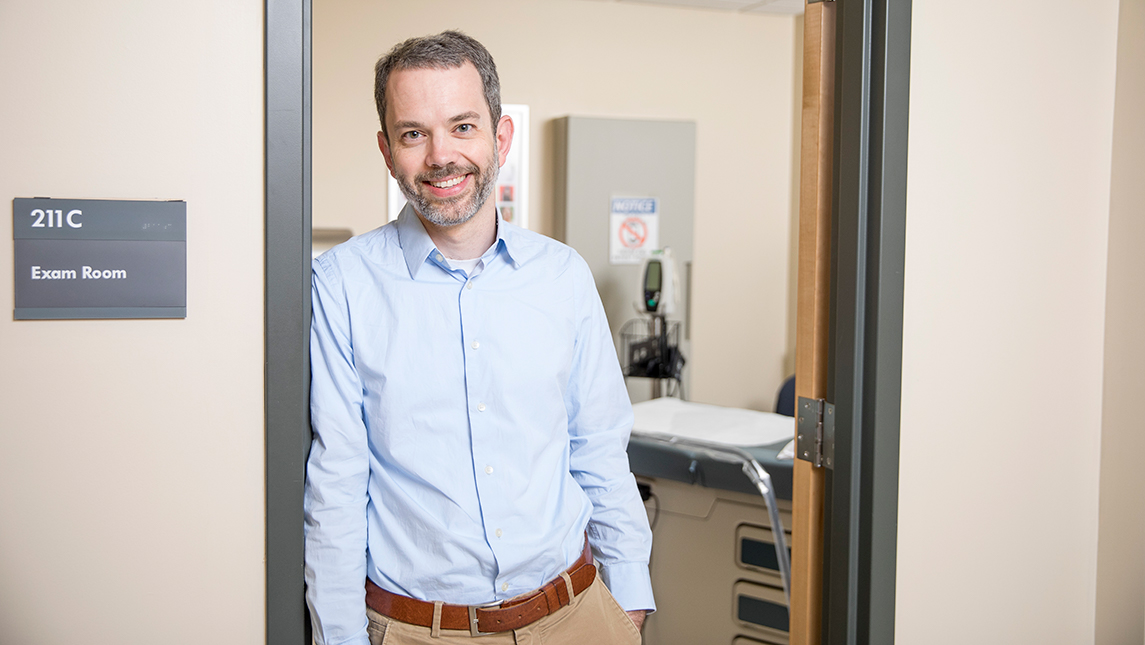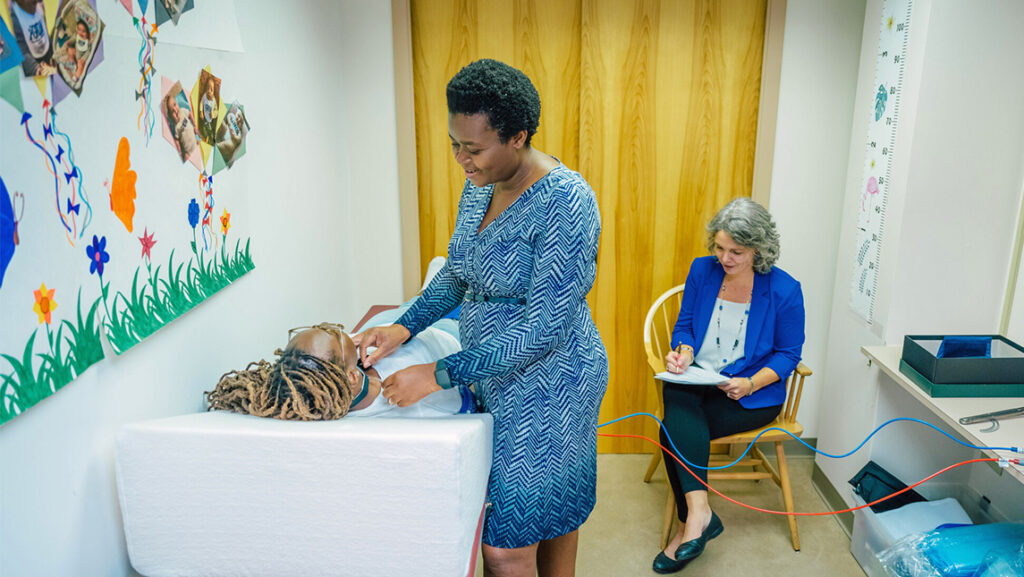
We are already seeing COVID-19’s effect on the economy. You see it in the closed restaurants and stores. You see it in the empty aisles at the grocery store. What other outcomes can the nation expect, and how can it handle the current issues and the aftermath?
In the Q&A below, Dr. Martin Andersen, an assistant professor in the Bryan School of Business and Economics at UNC Greensboro, discusses COVID-19 from an economic perspective. Andersen’s research focuses on health economics with an application to health policy.
What was the outlook of the global economy before the COVID-19 outbreak versus the outlook of the economy now? Are we heading into a recession?
My impression of the economy prior to the coronavirus outbreak was that it was in relatively good shape. However, there were some concerns prior to the outbreak that the global economy was heading for a recession because of the long period of anemic growth we’ve had over the last 11 years following the 2008 financial crisis. Of course, no one could predict this outbreak, and I would say we are now heading into a recession. Though by technical definition, a recession typically has to have two quarters of GDP declines, so if we get lucky, we’re going to just miss being in an official recession by definition.
How would this recession compare to the 2008 recession?
2008 was a very different beast because it was largely a financially-driven crisis caused by banks running into trouble. This recession will be pandemic-driven due to the number of people that are without work. I think it could be a worse recession, but on the flip side, I think we will see a much faster recovery.
What is the short and long-term economic impact of this global pandemic?
I think near-term we are going to have a fairly severe contraction due to a significant reduction in demand for services as people stay home. By practicing social distancing, that unfortunately means that our service-driven economy cannot survive well. I think the long-term impacts won’t be as harsh. It is unlikely for there to be a lot of destruction of productive abilities or assets, so I expect to see a relatively quick recovery once this is over. How long we have to practice social distancing will determine how quick the recovery will be.
How will small businesses be affected versus large corporations?
I think the biggest difference between the impact on small businesses versus large corporations is the ability to take on risk. The response to COVID-19 has imposed supply reduction, like we’re seeing with toilet paper. There’s also a reduction in demand as businesses are partially or completely closed. Small businesses aren’t in the best position to handle swings in demand like that, whereas large corporations have deeper pockets and the support of banks, so they can absorb the shock a little better.
What policy recommendations have been made or can be made, like offering a universal basic income (UBI)?
Right now we need to limit the damage, while taking into account the risks to life. I applaud the idea of giving everyone cash because the population is scared and hundreds of thousands of people are losing their jobs. I think you can bet on receiving a UBI. Also, hopefully instead of laying people off, we can effectively use paid sick leave so employees continue to get paid even if they are not showing up to work. I also think federal intervention into the plumbing of the global financial system makes a lot more sense than cutting interest rates to near zero, which has been done.
We’ve also seen the U.S. Small Business Administration grant the state governor’s request for a disaster declaration for small businesses that are suffering economic losses. This kind of assistance could help these businesses get through the current crisis. Depending on what these small businesses do with the money may also help the local community by not laying off workers. These moves to increase access to testing, provide people with money, and give loans to small businesses are all helpful policies that have been considered or have been passed. Many of these policies don’t necessarily help economic behavior, but they encourage people to stay home, which is the best thing we can all do.
Are there any steps policymakers can take to address some of these issues immediately and to be better prepared to support people with low incomes?
There’s a lot they can do. The Families First Act provides significant support and addresses some of the major holes in our social safety net by providing paid sick leave. It is also important to relax eligibility standards, especially work requirements, for Medicaid, SNAP, and other benefit programs. States that haven’t expanded Medicaid should do so. Steps like that are really vital because those barriers to Medicaid mean that individuals with low incomes aren’t going to be able to get treatment for the coronavirus when they need it. These are the steps we can make right now that will allow people to get treatment both now and in the future.
What can Americans do to protect themselves from the economic impact of the pandemic?
The economic impact is secondary. The impact on life is so much larger. The best thing you can do is be prepared to stay home and do exactly that. You don’t need to liquidate your 401k, but you should find enough cash to buy two or three weeks’ worth of groceries.
Would it be better for the economy going forward to increase the number of beds per capita in hospitals to prepare for possible future outbreaks/pandemics? Or is it better to utilize more extreme measures when there is an epidemic?
The United States has very few beds per capita compared to other countries in the Organization for Economic Cooperation and Development (OECD). We have on average 2.77 beds per 1,000 people. The average is 4.7 per capita. Italy has 3.2 beds per capita, and Spain has just under 3 beds per capita. That means a couple of the countries currently most affected by COVID-19 have more beds and are still strained, so this is a real issue.
However, hospitals are not well positioned to absorb swings in demand for hospital beds associated with pandemics, so it makes more sense for the government to own excess capacity. Some states are finding creative ways to increase the number of beds available by moving people who are dealing with a trauma-related ailment or an illness other than an infectious disease to be treated in other settings like an army hospital. This opens up beds in the hospital where infectious diseases can be properly handled, and allows hospital staff to focus on those patients.
How will this affect job seekers, like those graduating in May?
There will be fewer jobs, so it will be harder to find a job. It is important for job seekers to put their best foot forward when applying, because companies will be hiring high-performing individuals and will probably pay them more as well.
To follow university updates as they relate to COVID-19, visit go.uncg.edu/coronavirus.
Interview by Alexandra McQueen, University Communications
Photography by Bert VanderVeen


